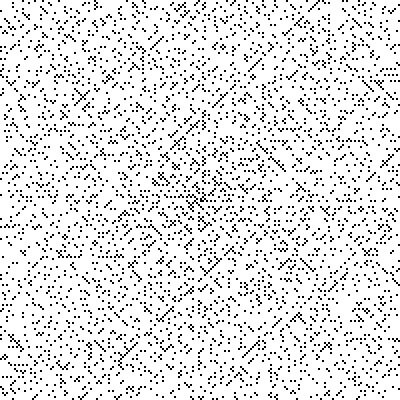Prove It!

(The Ulam Spiral shows the density of prime numbers)
As we go up the number line, we notice that primes become less and less frequent. Since the number line is infinitely long, does it mean that we will eventually run out of prime numbers?
Please provide a small proof showing exactly why your answer is true... I look forward to seeing all the different ideas people have about primes!
This section requires Javascript.
You are seeing this because something didn't load right. We suggest you, (a) try
refreshing the page, (b) enabling javascript if it is disabled on your browser and,
finally, (c)
loading the
non-javascript version of this page
. We're sorry about the hassle.
We can prove there are infintely many primes by contradiction. If there were finitely primes, let be P be the complete set of primes, containing n members.
Then p 1 , p 2 , p 3 , p 4 ⋯ p n − 1 , p n ∈ P
Now we can multiply all the members of the set and add 1:
Q = p 1 p 2 p 3 p 4 p 5 ⋯ p n + 1
We do not know whether Q is prime or composite but we can make deductions on either case:
Case 1: Q is composite:
If Q is composite, then it must have at least 2 prime factors but none of its prime factors are in the complete set of primes P :
Q ≡ 1 ( m o d p 1 )
Q ≡ 1 ( m o d p 2 )
Q ≡ 1 ( m o d p 3 )
Q ≡ 1 ( m o d p 4 )
⋮
Q ≡ 1 ( m o d p n )
So there must be a new prime number that is a prime factor of Q which should be added to the set P.
Case 2: Q is prime:
Obviously the set of primes is incomplete if we have found a new prime Q, therefore Q must be added to set P.
Therefore by contradiction, there is no such set P that contains all the prime numbers since it can always be expanded.
Since this process can be repeated in a cycle to the new set P, then there are infinitely many primes and the set P is infinitely large.